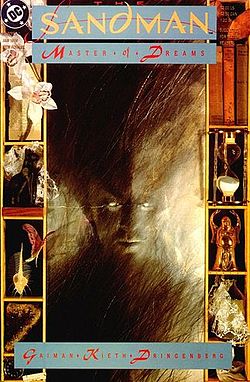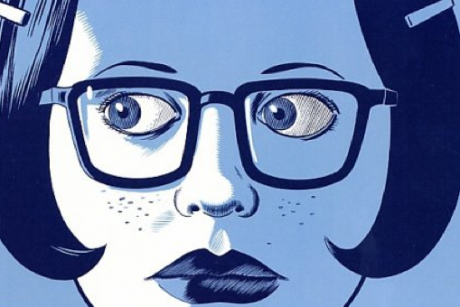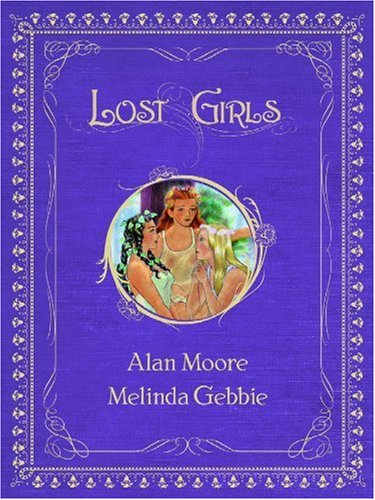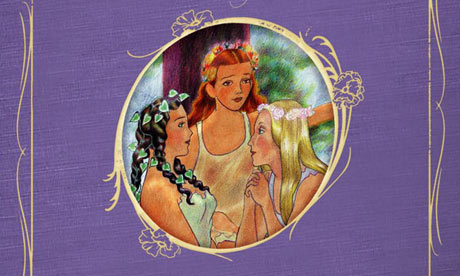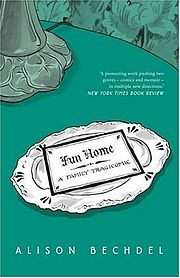[Noah]:My point is just that the whole continuity/shared world aspect of the big two’s output has some real downsides; it’s kind of ridiculous and incestuous and can lead to a lot of idiocy. I think Tom’s question gets at that. The real question, for me, at least, isn’t so much — why doens’t Bruce Wayne get a ring? As, why is it a good idea to have this kind of fan-fiction shared world in the first place?
Because it’s fun to have the characters meet.
It’s fun to have Batman stories, and it’s fun to have Superman stories, but it’s fun to have Justice League stories, too. It’s not really any more complicated than that. It’s entertaining.
The stories are the cake, and the shared-universe stuff is frosting. Things tend to go horribly wrong when people start to think the frosting is more important than the cake, and then get better when they remember that it’s about the cake after all.
The real answer to questions like, “Why doesn’t the Flash clean up Gotham City, too?” is “It would make Batman’s cake lousy. People read BATMAN because they like crimefighter stuff where Batman’s cool, and don’t really want to see Superman or the Flash or Green Lantern mess with that particular cake.” On the other hand, people who like stories where Batman and Superman and Green Lantern work together have the JLA cake, and some people like both kinds of cake.
But if you start to tie it together with logic foremost rather than entertainment, then you need to explain why Superman doesn’t help all the other heroes almost all the time, and why aren’t the crimefighters turned into SF-type heroes to make them more effective, and you end up with everything being JLA cake, and no solo Batman cake left. Or you come to the conclusion that it doesn’t work, so Batman shouldn’t be in the JLA, which maybe preserves the Batman cake, but it messes up the JLA cake.
So in the end, the answer to all of these questions is: Don’t mess with my cake.
Batman cake, when well done, is good. JLA cake, when well done, is good. But if you pay too much attention to the frosting, the cakes all start to taste the same, and that might be logical, but it’s boring.
This is also known as the Go ‘Way Kid, You Bodda Me school of comics continuity. Shared universes are fun as long as they make reading comics more fun, and not fun when they start to tangle things up and mess with the individual series concepts. When that happens, you can either go with it even though it messes things up, in the name of logic and continuity maintenance, or you can sweep it under the rug and look the other way.
Much as I love continuity, I’m a big fan of sweeping it under the rug and looking the other way. If it serves the X-Men series better to let Kitty Pryde age while it serves FF better to have Franklin age a lot slower, then that’s good — that’s cake, and both the FF cake and the X-Men cake should be good on their own terms. You just don’t have the characters talk about how they’re aging at different rates.
And if Batman could solve most of his cases by getting on the JLA communicator and asking Superman or Rip Hunter or someone to use time-travel or super-powers to solve the mystery, then you ignore it, because that’s frosting, and the important thing to do is make it a good Batman cake. He can do all that stuff with Superman or Rip Hunter in the other cakes, where those flavors enhance the story rather than messing it up.
[Noah:] But that’s probably just me…
Not really. But just like readers who don’t let it bother them that Nero Wolfe was 40 years old for 40 years straight, or that Linus was in kindergarten when Sally Brown was an infant, and later they were in the same class, there gets to be a point where you decide whether you want it to be strictly logical, or you want it to be fun.
Used to be, things sold better when they didn’t tie in too much, and nobody asked why the Avengers didn’t show up to help out with Galactus or where Spider-Man was that day. Nowadays, it seems like you can’t do a big story without it sprawling over most of the other books in the line, and that’s selling well…for now. But next year, or five years from now, who knows?
Maybe the individual cakes will be more important. Or maybe it’ll be mostly frosting, and Batman _will_ have a power ring.


